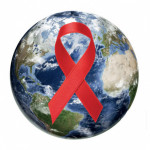The Biden-Harris administration released its proposed budget for fiscal year 2023. The proposed budget is the most comprehensive presentation of its funding priorities to date. While AIDS United commends the administration for proposing critical funding for several programs and initiatives that impact people living with HIV, there is still work to do to ensure funding is secured for necessary programs for the HIV community.
While the budget included funding for several pivotal programs, such as Ending the HIV Epidemic efforts and a national PrEP program, it fell short of many of the HIV community’s other priorities, including syringe service programs and the Housing Opportunities for Persons with AIDS program. The amount of funding for these key programs is not up to par with the levels that HIV advocates have been requesting and is simply not enough to fulfill the president’s pledge to end the HIV epidemic by 2030.
Ending the HIV Epidemic in the U.S.
The Ending the HIV Epidemic in the U.S. Initiative is vital for expanding health care to the communities who need it most.
Increasing access to HIV prevention and care programs as well as ensuring equitable access to support services align directly with the Biden-Harris administration’s commitment to ending the HIV epidemic. We praise the administration for properly funding this initiative at $850 million ($377 million above fiscal year 2022) across the U.S. Department of Health and Human Services in 2023 so we can further scale up, advance and invest in efforts around prevention, diagnosis, treatment and outbreak response for the 57 priority jurisdictions.
Ryan White HIV/AIDS Program
The Ryan White HIV/AIDS Program is one of the most important for the HIV community, and it’s in desperate need of support. Ryan White will receive some money through the EHE initiative, but that money will only be spent in the 57 EHE priority jurisdictions, which, together, only account for about half the people living with HIV. Additionally, there are several specific programs within Ryan White, such as the AIDS Drug Assistance Program and AIDS Education Training Centers, which are either not receiving any additional funds or are actually having their budgets cut.
National PrEP program
The budget allocates $9.8 billion across HHS over a 10-year period for a new national PrEP program. This would set aside $237 million in proposed funding in 2023. The program will guarantee PrEP, medications that prevent HIV, at no cost for all uninsured and underinsured people, as well as Medicaid beneficiaries. The program will provide essential wrap-around services through states and localities and establish a network of community providers to reach underserved areas and populations.
These funds represent a timely and important investment in public health infrastructure and prevention more broadly, especially given the setbacks created by COVID-19. A dedicated PrEP program would allow us to address any gaps or barriers and improve access to prevention services. We praise the administration’s investment in PrEP, and we hope to contribute to upcoming conversations about making this ambitious budget ask a reality.
Harm reduction
As stated in the president’s 2022 State of the Union, increasing funding for harm reduction programs is essential to ending the HIV and overdose epidemics. While we were thrilled to hear of the administration’s public commitment to harm reduction, that commitment is only as good as the funding behind it.
Unfortunately, the proposed budget only provided a $1.5 million increase for opioid-related infectious disease programs at the Centers for Disease Control and Prevention. Harm reduction advocates have been encouraging the administration to increase funding for these programs. It is also very concerning that the administration did not explicitly call for the repeal of the ban on federal funding for syringes. While the administration did provide potential opportunities for harm reduction funding elsewhere in the budget, it is not clear how much of that money will go to harm reduction programs.
Housing Opportunities for Persons With AIDS program
By properly funding the HOPWA program, the only dedicated source of housing funds for people living with HIV, we are able to address the widespread need for housing. Housing assistance is HIV prevention. The budget request of $455 million for HOPWA does not reflect the United State’s true need as it falls $145 million short of HIV advocates’ asks. Being stably housed allows people living with HIV to be more engaged in care, increases rates of viral suppression, and reduces avoidable emergency and acute health care needs. This will be a huge hit to those who lost funding last fiscal year and to the 100,000 people living with HIV who are experiencing homelessness.
What’s next?
We must continue to protect and advocate for funding to programs that provide life-saving treatment, resources and services for those living with HIV in Congress’ fiscal year 2023 budget and beyond to remain on target to end the HIV epidemic by 2030, which is in line with White House goals.
In the coming weeks, Congressional appropriators will meet to create their own budgets. How close a resemblance their funding plans bear to the President’s remains to be seen.








Comments
Comments